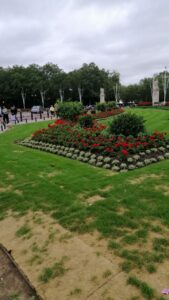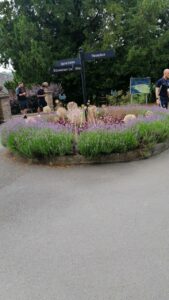Principal’s Report on the Trip to Sidcot, UK
Monday, 10 July 2023
Share this article:
Having arrived in England on the morning of Sunday the 25th of June with the Head of English, Lisette Hage, and 26 IB1 students, the week which followed proceeded to race by in a whirlwind, unsurprising perhaps given the responsibility which we had, to look after, guide, and ensure that all the students who travelled made the very most of this exceptional overseas experience with Sidcot School, with whom Lisette has successfully established a twinning arrangement. There is no doubt that the trip by Sidcot students to Brummana for the Model United Nations International Conference had helped to break the ice and enabled our students to mix more easily with the students in Somerset. We had an overwhelming and amazing week which we had to remember was something entirely new for the vast majority of students who had not visited England and knew of it really only through the media. There were ups and downs during the week and each day was packed with activity, incident and events. The students learned a huge amount about a different culture and aspects of English society, which they absolutely could not have learned from time spent in a hotel, from the socioeconomics of English village life to Shakespeare performed in an outdoor, natural environment.
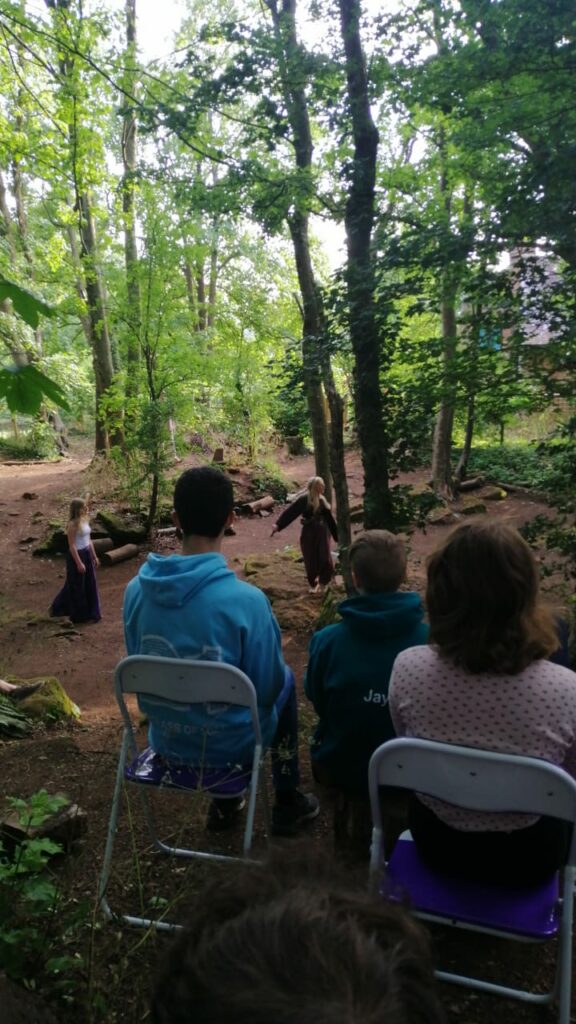
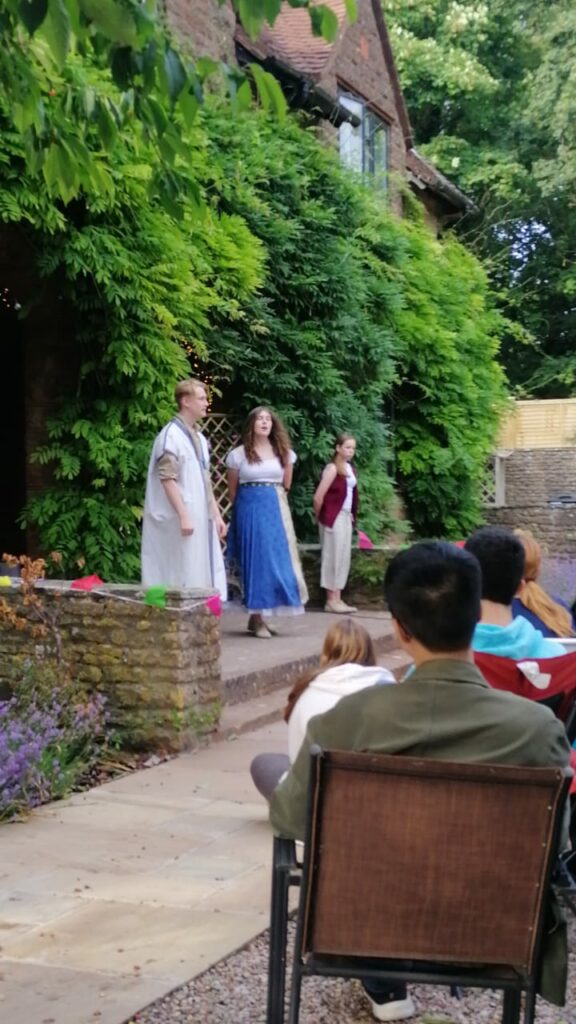
Each day consisted of the students attending lessons as closely matched to their IB courses or to their equivalent at A Level as possible, thanks to the auspices of Thomas Weidner, the Acting Head of IB at Sidcot, who had also accompanied the students when they came out to Brummana; he, his colleague Barley and the School Principal, Iain Kilpatrick, as well as a number of other staff, were enormously kind and generous to us in caring for our needs and in ensuring that we had an interesting and stimulating time.
On the Monday evening, there was a performance of ‘A Midsummer Night’s Dream’ which was familiar to most of our students, initially outside one of the boarding houses and then in woodland. We were very impressed by the quality of the acting of a play which had only been in preparation for a couple of weeks prior to its performance.
On another occasion the students played football in a match against Sidcot although the sides were mixed, which was fun to watch especially amidst the open fields of the Somerset rolling countryside in which the school is situated. Many times we walked the mile or so down the road from the school to the village of Winscombe where the students were always eager to supplement the meals they had at school. While there, they took in the novelty of charity shops and of the local village hall which housed everything from choir rehearsals to evenings of card games and on our last day there, Saturday, a wonderful second-hand book sale on which we all descended and spent very little money on a very large number of books in excellent condition. These experiences in the village made our students think about the nature of community life and its similarity to and differences from their lives in Lebanon. On 3 days of the week they attended lessons and were able to compare teaching and learning on one continent with that on another. We spent a half day in Wells, the smallest city in England, visited the ancient cathedral, the market and saw exquisite evidence of England’s habit of preserving the past through its architecture, its winding streets, and its traditions. At the market I even spotted a town crier which I thought had gone out of fashion about 200 years ago. There were also opportunities to use the sports centre, to have a barbecue and to attend a movie evening. On the penultimate day, we all visited London. This required us to leave Sidcot at 6:00 in the morning and travel by coach to arrive at Shakespeare’s globe theatre on the south bank of the Thames at around 10 o’clock. We had a most interesting tour of the Globe, then visited the Tate Modern art gallery next door, and then crossed the Millennium Bridge, which affords a wonderful view up and down the Thames, to St. Paul’s Cathedral. After lunch at a fast-food outlet, we travelled by tube to Piccadilly Circus. This was an interesting experience for the students and a terrifying one for Lisette, me and Mark, a Religious Studies teacher who was accompanying us from Sidcot, simply because it is so easy to lose people in the underground. Fortunately, we managed to keep tabs on everybody and safely navigated the underground channels of London. We then went on a walk to some of the most famous landmarks in London, culminating at Waterstones Bookshop, the biggest branch in the U.K., where we spent some time and which was very popular with the students.
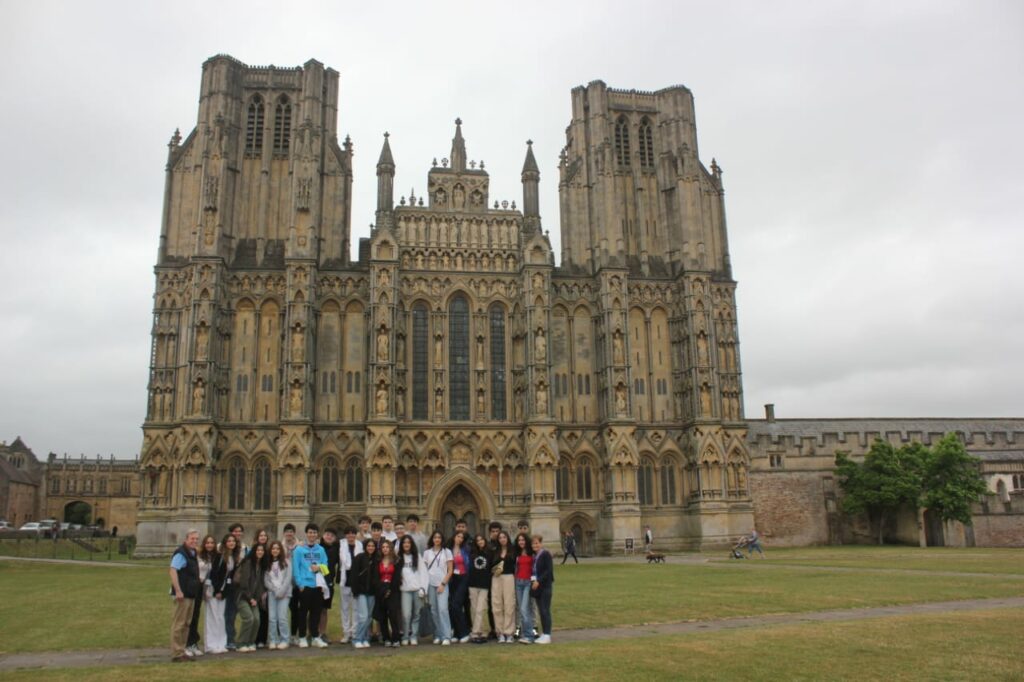
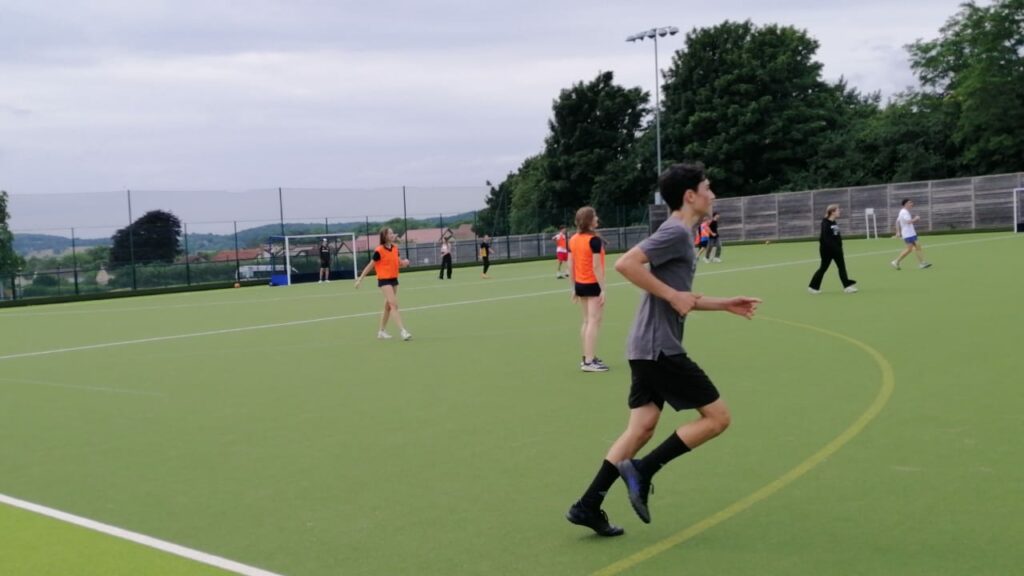
The days simply whizzed by since they were so full of activity, some of which was apparently mundane but nevertheless new to us all and therefore mesmerising. Everyone will have grown from the experience and have returned to Brummana with many memories, which Lisette will capture in an article which will be accompanied by many of the pictures we took and which we shall publish on social media and on the school’s website. I am indebted to her for her leadership of the trip, for her organizational skills and particularly for her care of all of the students.
It’s many years since I have accompanied a school trip. I had forgotten what hard work it was but also what fun it can be too. And I hope that the time we spent at Sidcot will cement our connection with them and enable all kinds of exchange of students and of staff, of knowledge and of ideas, of cultural backgrounds, of teaching and learning, to take place in the future.
We had some adventures on the return journey, starting with the coach taking us to the wrong terminal at Heathrow airport and including a chaotic check-in at Heathrow where the officials seemed eager to help but were hopelessly organized to do so. We left at 10 o’clock at night, London time, and arrived around about 5 o’clock in the morning Beirut time, tired but happy and exhilarated by the week’s experience. And maybe the students also learned that their own country is a wonderful place; the grass on the other side is not necessarily greener, just a different shade of green.
